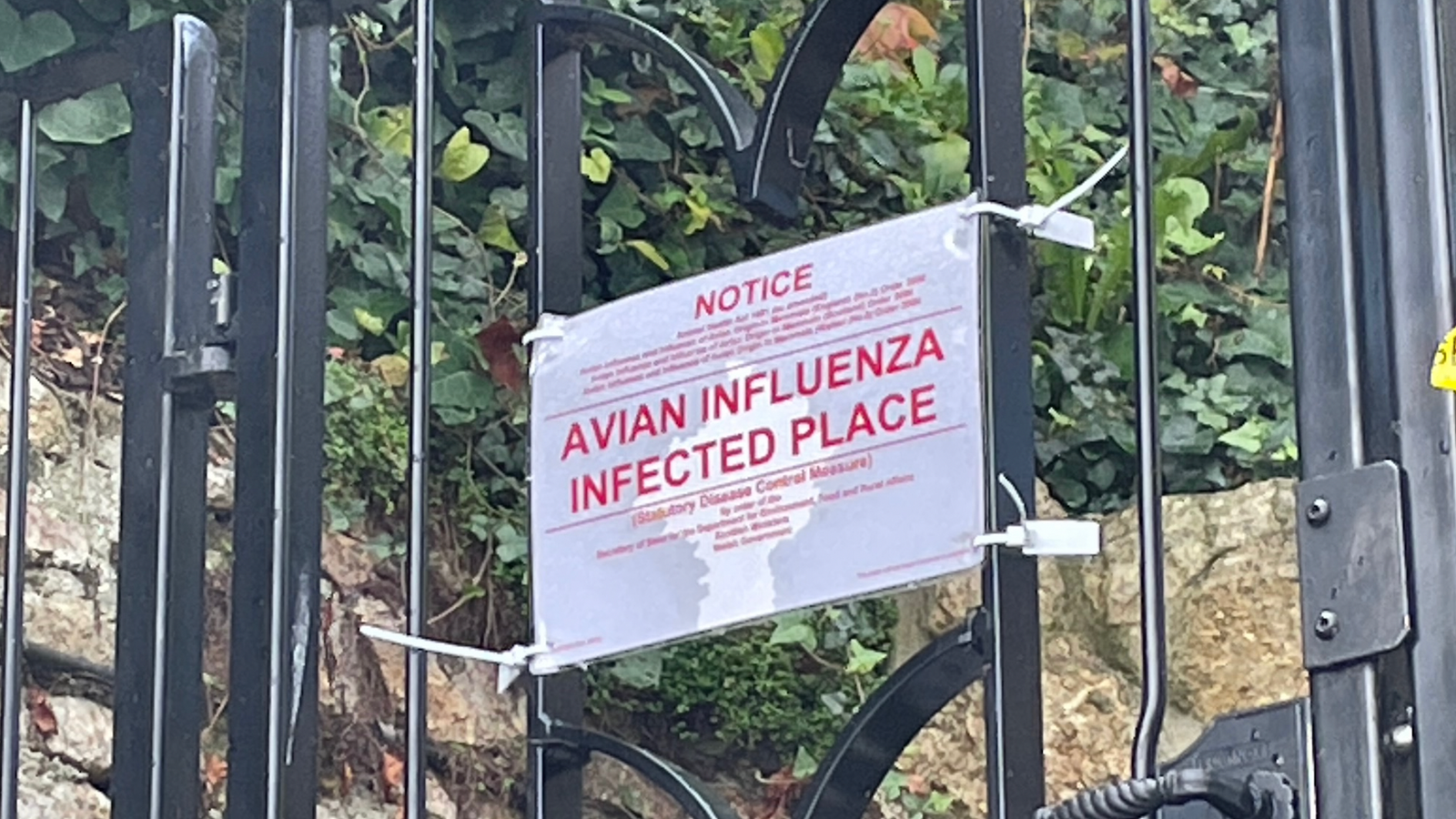An increase in bird flu cases has led Great Britain’s chief veterinary officers to declare a prevention zone across the whole island.
It is now a legal requirement for all bird keepers in England, Wales and Scotland to follow strict biosecurity measures to protect their flocks from the threat of avian flu, the Department for Environment, Food and Rural Affairs (Defra) said.
The measures include keeping free-range birds within fenced areas and for keepers with more than 500 birds to restrict access for non-essential people on their sites, changing clothing and footwear before entering bird enclosures and cleaning and disinfecting site vehicles regularly.
The largest-ever outbreak of bird flu in Great Britain has seen 190 confirmed cases since late October 2021, with over 30 of those confirmed since the beginning of the month.
“Bird keepers have faced the largest ever outbreak of avian flu this year and with winter brings an even more increased risk to flocks as migratory birds return to the United Kingdom,” the chief veterinary officers for England, Scotland and Wales said in a joint statement.
“Scrupulous biosecurity and hygiene measures are the best form of defence, which is why we have declared an Avian Influenza Prevention Zone (AIPZ) across Great Britain, meaning that all bird keepers must take action to help prevent the disease spreading to more poultry and other domestic birds.
“The introduction of an AIPZ means regardless of whether you keep a few birds or thousands, you are legally required to meet enhanced biosecurity requirements to protect your birds from this highly infectious disease.”
The UK Health Security Agency (UKHSA) has said the risk to public health from the virus is very low.
The Food Standards Agency said avian influenza pose a very low food safety risk for customers and advised that properly cooked poultry and poultry products, including eggs, are safe to eat.
Read more:
Worst bird flu outbreak in UK history could put Christmas turkeys at risk
Large parts of the UK had already been declared Avian Influenza Prevention Zones (AIPZ), including Norfolk, Suffolk and parts of Essex.
It follows a decision to raise the risk level for bird flu in wild birds in Great Britain from medium to high. The risk level for poultry and captive birds was raised from medium to high at locations where biosecurity is below the required standards and from low to medium where stringent biosecurity measures are applied.






















